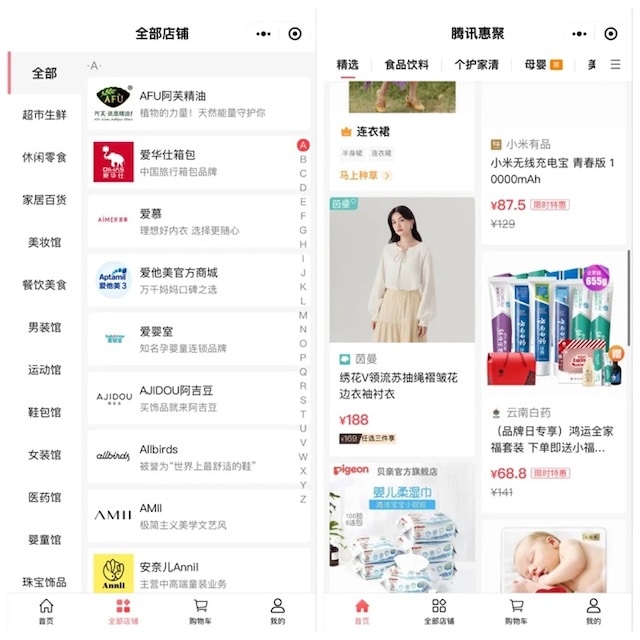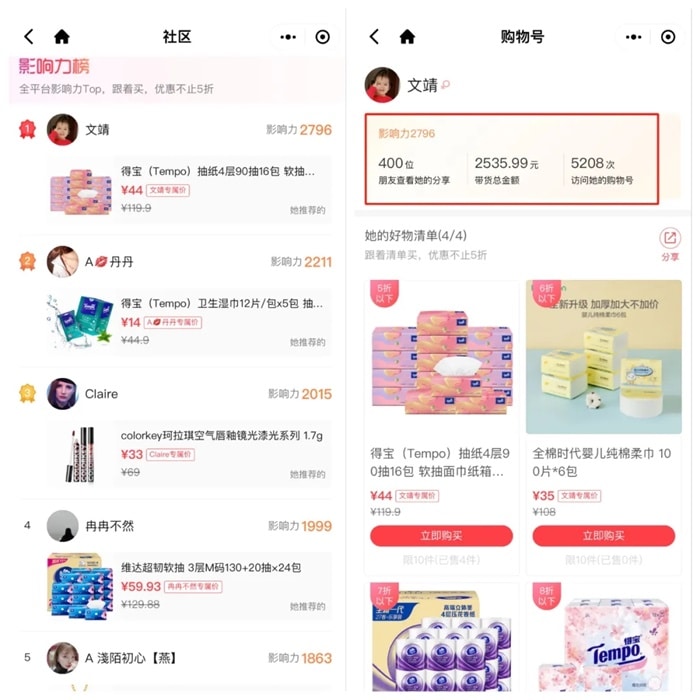WeChat launched another product “Shopping Accounts” to its ecosystem in addition to Official Accounts, Mini Program, and Video Accounts.
“Shopping Accounts” is under Tencent Huiju, which is a mini program for select brand products, launched by Tencent Smart Retail in December 2020. Huiju aggregates different household name brands’ WeChat mini programs including Walmart and Starbucks, similar to Alibaba Taobao’s upgrade Tmall, a platform for well-known brands.

Tencent Huiju currently covers about 11 categories of products, namely supermarket fresh food, leisure snacks, household department stores, catering and food, beauty shop, men’s clothing shop, sports hall, shoe and bag shop, women’s clothing shop, baby and children’s shop, and medicine shop.
As of May 15, a total of 354 brands have set up their Huiju stores.
Huiju is defined as “the social e-commerce practice solution of Tencent Advertising”. Huiju subsidizes the platform users with the traffic acquisition cost for social community distribution to achieve a lower acquisition cost and help the “private domain growth” of businesses.
In the future, Huiju will introduce new interactive play methods, such as group buying discounts, brand live streaming, and new user red envelope.
Tencent Huiju’s new function “shopping accounts” is more eye-catching.
The steps for users to register “shopping account” are very simple. Any WeChat user can open the Tencent Huiju mini program to easily get a “shopping account” linked to her own WeChat personal account to sell products from Huiju to potentially earn commissions.
The “shopping account” is equivalent to a virtual store where individuals share their “favorite” products from Huiju platform. Users can select product from Huiju platform and put them on the “my product list”.
The initial shopping account has only four product listing locations and one can’t change the listed product in three days.
The higher the “influence” of the shopping account, the more recommended places they can get. The account owner can share these products with WeChat friends, who could buy the products at a price lower than the platform, also known as “exclusive price”.
For merchants, they can potentially enjoy the huge traffic with much lower cost from WeChat’s 1.2+ billion users, which remains to be proven. Currently, shopping account owners can’t get cash rewards from successful referring products to their WeChat connections. And, the lacks of shopping habits on WeChat and customer support are both hindrances.
There’s a community feature where shopping account owners can see recommended products from friends as well as the accounts’ referred sales and visits:

This product seems to be still in its early stage with many frictions to clear to realize the social e-commerce potential. Check out another product Tencent officially launched as a Pinduoduo competitor here.